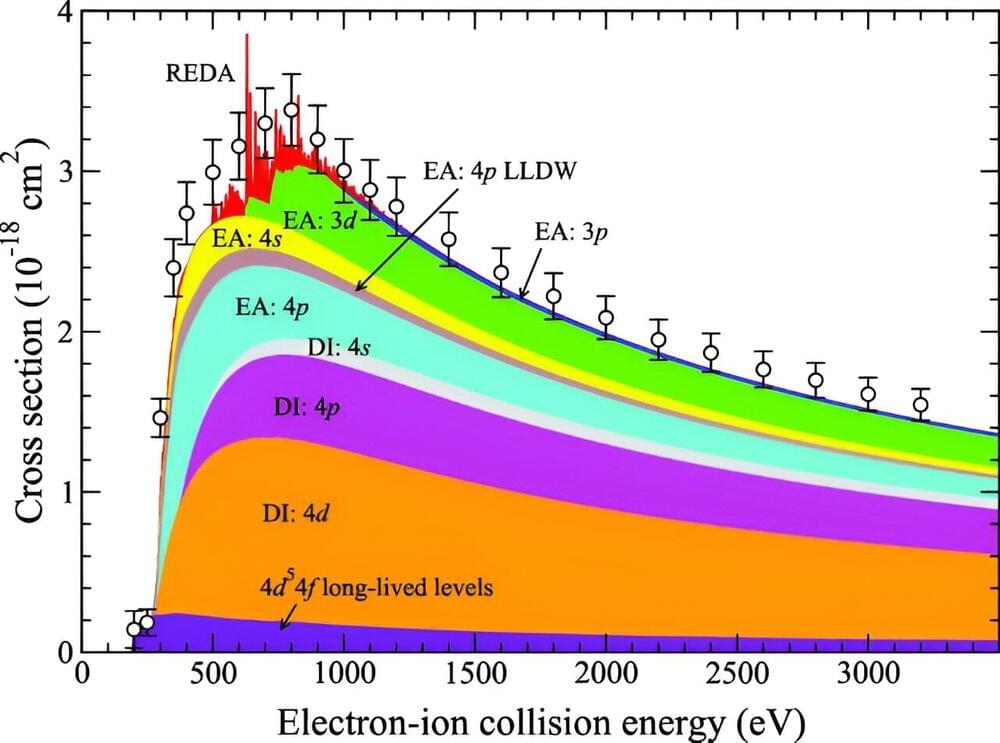During electron-impact ionization (EII), high-energy electrons collide with atoms, knocking away one or more of their outer electrons. To calculate the probability that ionization will occur during these impacts, researchers use a quantity named the “ionization cross-section.” EII is among the main processes affecting the balance of charges in hot plasma, but so far, its cross-section has proven incredibly difficult to study through theoretical calculations.
Through new research published in The European Physical Journal D, Stefan Schippers and colleagues at Justus-Liebig University of Giessen, Germany, present new calculations for the EII cross-section, which closely match with their experimental results. Their discoveries could provide useful new insights in many fields of research where hot plasma is studied, including astrophysics and controlled nuclear fusion.
So far, EII cross-sections have proven especially challenging to calculate for two key reasons: the complex interactions that can emerge between the electrons involved in the process, and the wide array of possible electron configurations in the atoms being impacted.
